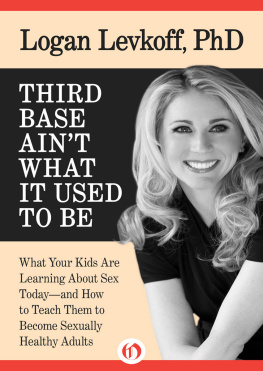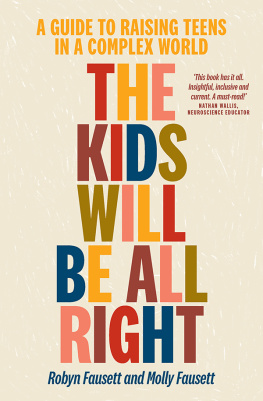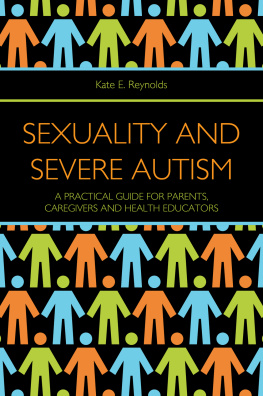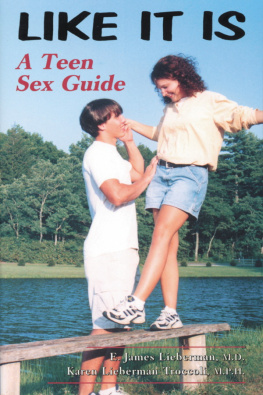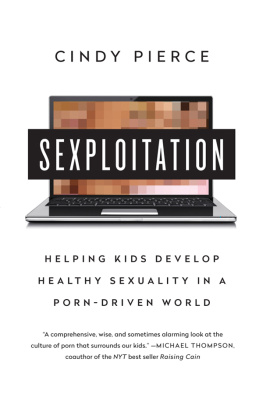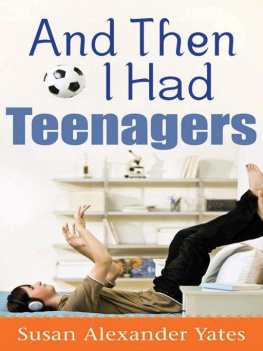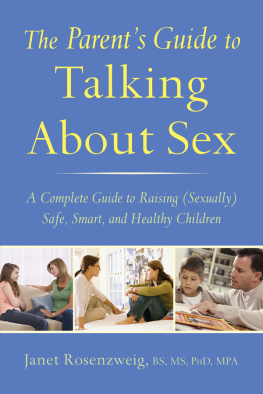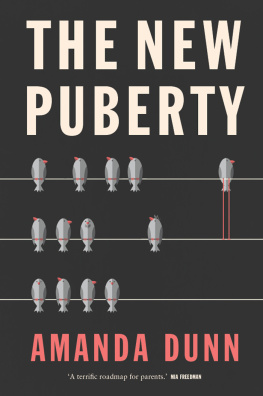Third Base Aint What It Used to Be
Logan Levkoff, PhD

This book is dedicated to my familymy parents, Susan and Steven Levkoff, for teaching me about tolerance and respect and giving me a model of what good parenting is all about; my husband, Louis Cortes, for over a decade of unconditional love, laughter, and counsel; my son, Maverick, for inspiring me to be a better person and allowing me to put my career to good use on a daily basis; and to my grandparents, Bea and Milton Shapiro, for everything.
Contents
Introduction
What is sex, anyway?
I have asked this question of hundreds of children and teens over the years, and while there has never been a unanimous answer, attitudes toward sex have definitely changed. There is great debate over which sexual behaviors count and which dont. Many of my students have suggested, Oral sex isnt sex. Its just third base. Even if you dont remember what the baseball analogy was when you were in school, the way children view sex is different now. And thats where I come in.
FROM PRESIDENT TO SEX EDUCATOR TO PARENT
Most children dont wake up one day and say, When I grow up, I want to be a sex educator. I certainly didnt. I always thought that I was going to be the first female president of the United States. If that failed, I would consider a job as an attorney or Supreme Court justice. A career that had to do with sex was never part of my grand plan. But while my dreams of being in politics eventually waned, my desire to explore provocative subjects for a mass audience never faded. This desire to stimulate dialogue stemmed from my familythey ingrained in me both a sense of responsibility and a lot of confidence, a perfect combination for someone who talks about sex for a living.
If you think that my parents were liberal hippies who espoused ideals of free love, you would be very much mistaken. My own sexuality education was pretty minimal, from what I remember. My parents bought me a book called Mommy, Where Do Babies Come From?, in which two childrens quest to discover how babies were made took them to a florist, where they learned about pollination, to a bird specialist, who taught them about bird fertilization, and then, finally, back home to the boys mother to learn about human reproduction. Though the last few pages talked about the penis and vagina, they didnt offer any illustrations of the partsonly a water-color drawing of a mommy sitting in a rocking chair while her son and his friend listened at her feet. In hindsight, the book was sweet, but not very informative.
It was the kids on the school bus who supplied the gory and graphic details of my sex education (many of which, as you can imagine, were barely accurate). But even though a lot of what the big bully in the backseat told us seemed crazy (like you could get pregnant if someone spit on you when they had an erection), we believed him. He became our expert.
So how did I get from the back of that school bus to the front of the classroom? In my quest to discover why I became a sexologist, I came across some interesting artifacts hiding in my parents attic. My mom had requested that I go through some of my old things. I believe her exact words were Keep it or trash itjust not here. In my search, I found my third-grade diary. As Spin the Bottle parties hadnt begun until I was in seventh grade, I didnt expect to find anything interesting.
April 24, 1985. I stayed up late to watch Dynasty. Alexis and Dex were kissing with tongue. He grabbed her and her bra almost popped open. Then they started makingoopshaving sexYeah! Ooh! Okay, so if you have ever watched Dynasty, this is not surprising to you. Alexis Carrington bedded dozens of men, sometimes all in one episode. But I couldnt believe that my affinity for writing about sex may have started at age nine. I went through the rest of the diary and found at least twenty more descriptions of televised sexual escapades. Dont forget, television was much tamer then. I had probably managed to find most if not all the network sex there was at the time.
The truth is, despite my typically meager sexuality education, my proclivity toward sexual topics is actually in my blood. My late grandfather, who was my biggest supporter, never left his house without my business card in his pocket. (Whenever I spent time with my grandparents, there would always be a seventy-year-old friend asking me if I was the granddaughter in the sex business. And then they would ask me their most personal sex questions. Believe me, if you thought seniors dont have sex, think again!) Though I never knew his mother, I felt connected to her, too. Lena, who I was named after, was a strong, liberated woman. In fact, she was one of the first women to go to the Margaret Sanger Center in New York City to get a pessary. (In todays language, that would be a diaphragm.)
Whether or not my career choice is related to my genetic makeup, I have learned that what most people shy away from, I am drawn to. I hope that my ability to speak honestly about sexuality encourages you to do the same thing in your homes, with the people you care most about. The umbrella of sexuality covers so much of who we are and what we believe in. And although I once dreamed of becoming president, now I cant imagine doing anything else.
I began my work in this field long before I had children of my own. But now, as a parent, I am doubly committed. I am terrified at the thought of those ignorant kids on the school bus as my sons sex educators. Today, its not just the misinformation that seeps into our kids brains, but the unspoken value system (or lack thereof) that seeps into our kids lives and vocabulary. Our culture is full of mixed messages about sex. On the one hand we are puritanicalmovies full of violence get lighter MPAA ratings than those with sex; on the other hand we are highly graphic, if not sexually exploitativepop stars of all ages are portrayed as highly sexualized and some are even making and distributing their own personal sex tapes. Add to this mix our societys heavy proviolence stance and we have a real problem on our hands. If we dont challenge these views in our own homes, we default to them.
We are responsible for our childrens sexuality educationfor their values and their treatment of themselves and others. Whether we talk frequently or avoid the issue altogether, our participation, or lack thereof, sends a message. We teach even when we stay silent.
M y parents always laugh at me when I tell them that there are certain words that people cannot use around our son, Maverick. Not the words youre thinking of. Profanity is fineits the uglier, loaded terms with negative connotations that scare me. I teach children all the time who commonly call something or someone faggy instead of using the more palatable term nerdy. No matter how old I get, the word faggy engenders so much frustration for me. By using the wordeven if its context is completely innocentwe implicitly accept this racial slur when we should be challenging it. And lets be honestthe word doesnt just come from the school bus big mouthit comes from all the kids, and it comes from us, their parents.
THE PHILOSOPHY OF THIS BOOK
As you will read in Chapter 2, sexuality educators construct their classes to be as value-free as possible. It is not our job to tell students what to believe (or what we personally do or dont do), but rather, we give them facts, tools, and multiple perspectives so that they can identify their own personal values. I believe that parents, however, should absolutely be teaching their children about their values, and their personal experiences. As parents you can be wonderful sexuality educators, because you can use your values and experiences to teach, but also because you engage with your children on a daily basis. In a classroom, I have limited time to work with my students; you have access to them every day. While they may not always follow your lead, your children will use your values to help them develop their own beliefs. Though I encourage you, as you read this book, to explore your own values regarding sexuality, mine are quite evident. For example, I believe in tolerance, healthy sexual communication, and the right to have sexual pleasure, both emotional and physical. The educational philosophy inherent in the book is also in line with the SIECUS (Sexuality Information and Education Council of the United States)

